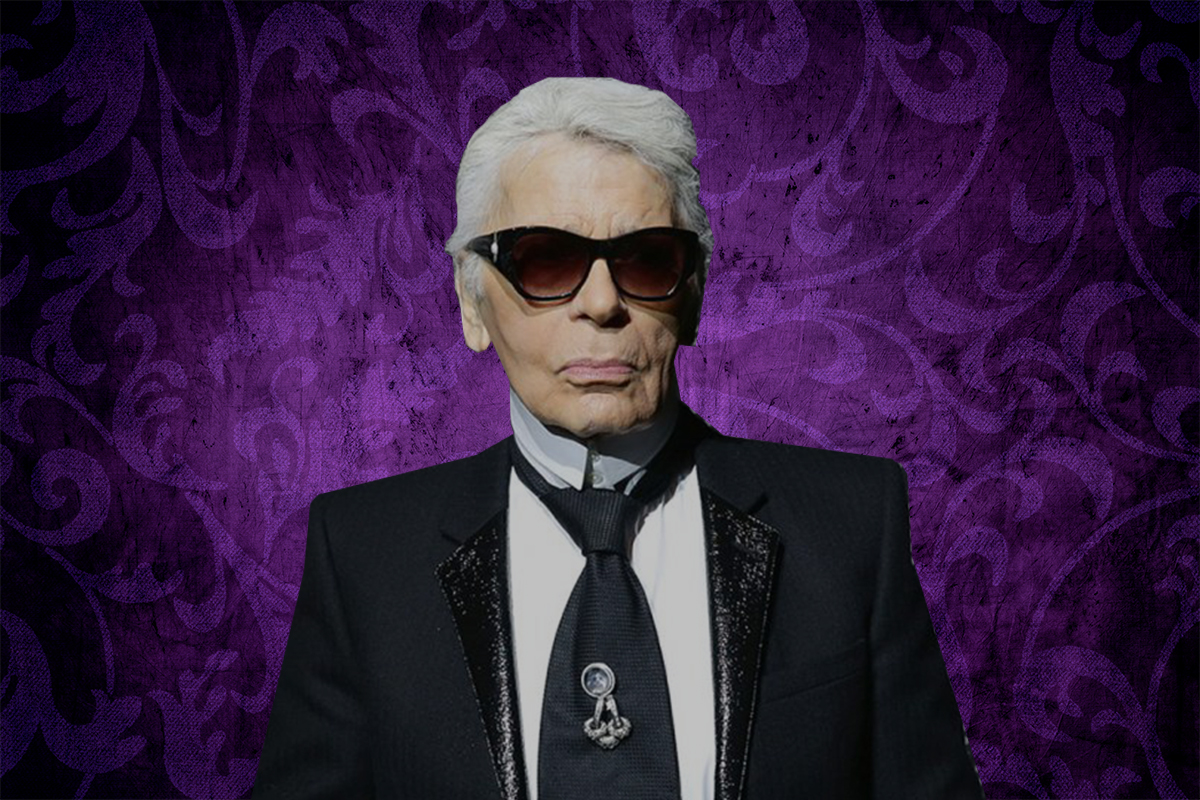I woke up yesterday to find my Instagram feed filled with solemn messages about the loss of fashion’s precious darling, Karl Lagerfeld, Chanel’s creative director for the last 36 years. With Paris Fashion Week only a few days away, the 85-year-old passed on after a month of being ill, according to different news outlets.
Hearing this, I was shocked and also unsure how to feel. As I noticed other celebrities and influencers sharing positive and profound posts online – including actress Yara Shahidi and model Adwoa Aboah, individuals who have spoken out about different social injustices – I felt awkward, wondering whether it is possible to mourn a figure like Lagerfeld who had a history of being problematic.
As someone who worked in the fashion industry for several years, Lagerfeld was once someone I looked up to. For me, it wasn’t really about the items he designed; it was more so about the playful worlds he constructed around clothing. For example, in 2014 he turned the runway into a gallery complete with enormous artworks that drew from landmark artists such as Claes Oldenburg and Marcel Duchamp. That same year, he transformed Paris’s Grand Palais into a grocery store where stylish models strutted around, placing cereal boxes and fashion things in their Chanel baskets. With glitz and glamour, Lagerfeld was the industry’s heavenly father, a cultural icon who was celebrated beyond the walls of high fashion’s exclusive universe.
But something more insidious was bubbling up behind those walls.
While online activism became standard in the face of the 2016 U.S. presidential election and other sociopolitical issues, in recent years Lagerfeld had come under the microscope for making several senseless comments. He was against the advent of plus-sized models, called supermodel Heidi Klum “too heavy,” and said that it would be “difficult to have an ugly child.” On top of this, he believed that having children should be reserved for women, not men, and blamed women of the #MeToo movement for not remembering what happened.
And then, in 2017, Lagerfeld made troubling comments on a French TV show while discussing Germany’s open borders to migrants during the Syrian refugee crisis. “One cannot – even if there are decades between them – kill millions of Jews so you can bring millions of their worst enemies in their place,” he said. (For the record, Syrian refugees are not the sworn enemies of the Jews.) To make matters worse, he then added, “I know someone in Germany who took a young Syrian and after four days said: ‘The greatest thing Germany invented was the Holocaust.’”
As founding designer Coco Chanel was also affiliated with the Nazi movement, Lagerfeld continued to spread a white supremacist attitude beneath a sea of updated tweed jackets and quilted purses.
Learning these things had turned Lagerfeld from someone I deeply admired into someone I seriously questioned. Every time I saw an image or celebratory social media post about him, I cringed. Still, he, like many other powerful white men, mostly got away with these transgressions, maintaining his reign as an industry favorite.
I’m not rejecting Lagerfeld or anyone else’s important contribution to contemporary culture, but when someone in power does something wrong, shouldn’t they be held accountable and not get off scot-free?
Though it seems almost taboo to call out someone’s faults when they die, as a Jewish woman I find myself growing more and more uncomfortable as the positive messages continue to fill my feed. Noticeably, only a few activists have denounced his bad behavior, and most have not addressed his particularly anti-Semitic ways.
This situation brings to mind circumstances surrounding the recent complicated losses of other key figures such as former president George H.W. Bush, who was criticized for not doing enough to tackle the AIDS crisis, and popular rapper XXXTentacion, who had a history of violence and sexual assault, causing me to wonder how we can properly mourn these individuals.
Yes, Lagerfeld made gorgeous clothes, but with all his faults it seems impossible to completely separate the artist from the art. Though I am Jewish and denounce his repulsive comments, it’s hard to see a situation like this in such black and white terms. Especially since, if we threw away his cultural legacy along with anyone else’s who has been anti-Semitic, we’d have to discard much of our collective history since almost all of it is cloaked in hateful rhetoric. But if we don’t address Lagerfeld or anyone else’s wrongdoings, especially when they die, it leaves out important information about who they were as full individuals, spreading false, harmful narratives about what is acceptable and what is not.
While there is not one way to mourn an individual, let us be reminded of the ways society should be more conscious of a cultural figure’s mixed legacy, especially when they are someone who has spread hurtful messages about marginalized individuals. Though Lagerfeld was both iconic and problematic, he is definitely someone we can learn from.



